Well, although it is known as “wisdom” tooth, people who don’t develop it are said to be lucky! Have you ever thought about why this third set of molar is popularly known as wisdom tooth? Why do some people don’t develop them at all? And why there are many who go through this extreme pain and discomfort? 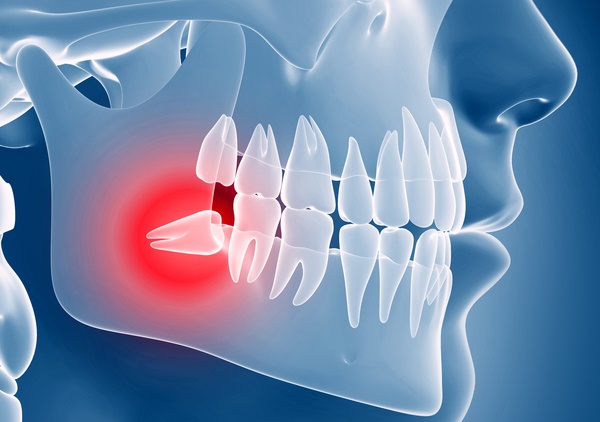
At around your 10th birthday, your wisdom tooth starts forming. However, you will never feel its presence then. The third molar or wisdom tooth formation takes place at a later stage, as compared to all the other sets of teeth. And this is precisely why the third molar emerges at the age from 17 to 25 years. Since this age is considered to be more mature, the molar is known as wisdom tooth. That’s fair enough, Isn’t it?
It is now that you start feeling its presence, as in the majority of cases it gets really painful. The pain is so severe that extraction is perhaps the only solution. And again some people for reasons unknown, tend to postpone their wisdom tooth extraction plans. However, it is important for you to know that besides pain, a wisdom tooth can lead to many other dental issues that can have serious consequences. So, delaying your extraction plans will not be of much help!
Moreover, wisdom tooth extraction is not a critical surgery to undergo. The surgery is quite common and available with perhaps every dental surgeon in your locality. And as far as the cost is related, wisdom tooth extractions are rather affordable.
Well, if you are still giving a second thought about eliminating that wisdom tooth from your system; we are always there to assist you in taking informed health-related decisions or to convince you in taking much-needed steps.
The following discussion will help you to get an overall idea about the wisdom tooth extraction procedures and how important it is to get rid of the associated pain. And yes, that’s not all. If you happen to belong to any of the popular cities across the country, we can even provide you with an overview of prices in your city or the nearest dental care facility.
Be wise – Know your wisdom tooth:
If you are someone who is afraid of going under the knife, make an appointment with a dental surgeon and get all your doubts clear.
Is wisdom tooth development a sign of good/bad health condition?
No, the wisdom tooth is a natural phenomenon and has no relation with your health condition. You may or may not develop it. To understand its development and removal, we need to go back to the caveman period. 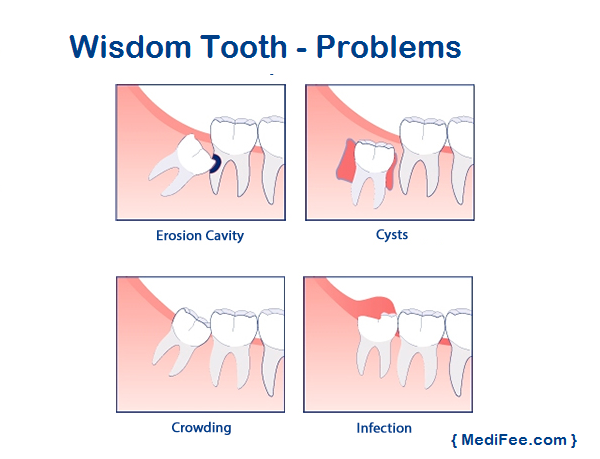
Many biologists say that wisdom tooth can be considered as a vestigial part of the body. A term that is used to indicate body parts that had significance in the anatomy of our ancestors. However, today due to evolution, it has lost much of their earlier significance and plays no vital function or usage in the human body.
The diet that was followed earlier needed third molar for chewing and digestion. However, presently, the diet followed is comprised of softer edibles that do not require vigorous chewing. This has also led to a decrease in the inner size of our mouth. Thus, the third molar plays no important role in our digestion process and perhaps there are many who have no wisdom tooth development in their entire lifetime.
Do all wisdom tooth cause pain?
The wisdom tooth is not always painful. If your mouth has enough room to accommodate its growth, this molar can develop as normally as any other tooth. 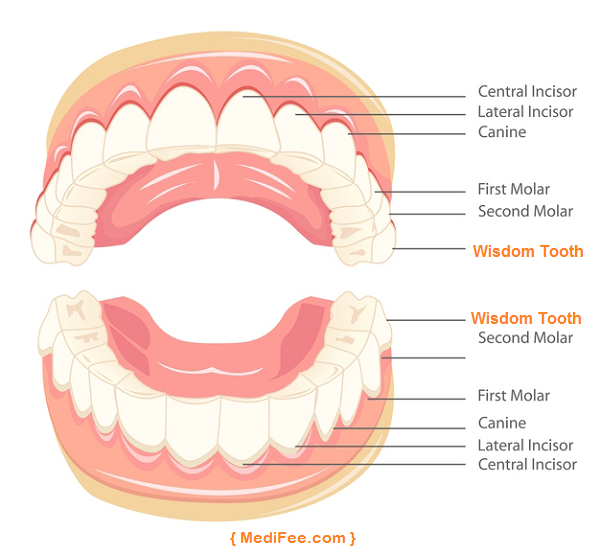
However, in most cases, the human mouth does not have a sufficient area to allow seamless growth of the wisdom tooth. The reason being evident that our mouth has reduced in size over the years due to evolution. So, lack of space results in a condition known as impacted wisdom tooth and is definitely painful.
What is an impacted wisdom tooth?
As mentioned earlier, a lack of space within the mouth results in an impacted tooth. 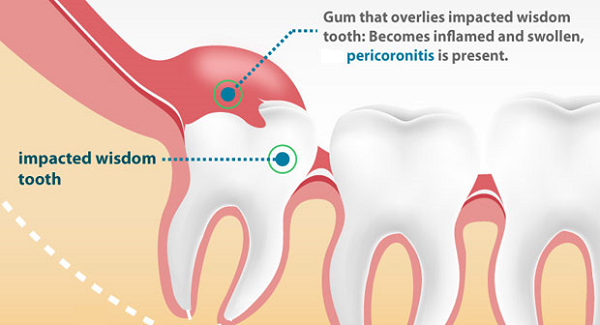 In this condition, the wisdom tooth makes an attempt to emerge out of the gum and gets obstructed by the tooth in front of it.
In this condition, the wisdom tooth makes an attempt to emerge out of the gum and gets obstructed by the tooth in front of it.
What are my options besides extraction?
Your doctor will not prescribe an immediate removal if there can be some other solution to control. Toothache is caused when the area is infected with bacteria or cavity.
Cleaning the area, which is perhaps slightly difficult, owing to the interior position at which it is located; can otherwise definitely relief pain. In addition, mouth washes, some pain relievers and home remedies may prove satisfactory. However, if all of these fail, removal is essential. Rather, many surgeons suggest that wisdom tooth may result to future complications, and therefore, it is better to get it removed as early as possible.
Why do extractions become difficult?
Well, very often wisdom tooth extractions are not highly difficult. However, sometimes there can be certain complications. Many people experience that the extraction of one wisdom tooth was far easier than the other. Precisely, removal of lower wisdom tooth is difficult than extractions at the upper jaw.
Again, the levels of impaction also influence the degrees of difficulty. If the tooth is immensely impacted, wisdom tooth extractions become difficult to carry out.
Age is also an important factor in this regard. 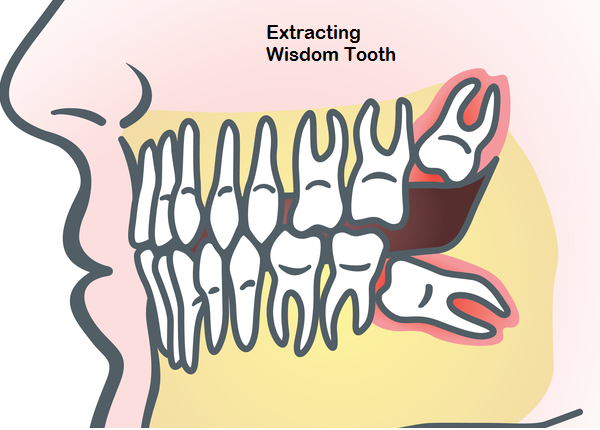 The earlier you visit your dentist and do the needful, the better it is. People undergoing extractions at an older age, say 48 years and above will suffer from some post-surgery problems. Sometimes, a broken tooth may also hinder the extraction procedures.
The earlier you visit your dentist and do the needful, the better it is. People undergoing extractions at an older age, say 48 years and above will suffer from some post-surgery problems. Sometimes, a broken tooth may also hinder the extraction procedures.
How is the extraction carried out?
The extraction is carried out at the doctor’s clinic as an outpatient. It gets completed in an hour or two. It is a simple process, and if you want to have a clear idea about the entire process, you may learn it here along with the precautions to be followed post surgery.
Well, this was all about wisdom tooth extraction. Now, that you have read the post and perhaps got answers to a few of your questions, taking an important and wise decision will not be that difficult. Hoping that all our readers remain in the pink of their health, we conclude today’s discussion.